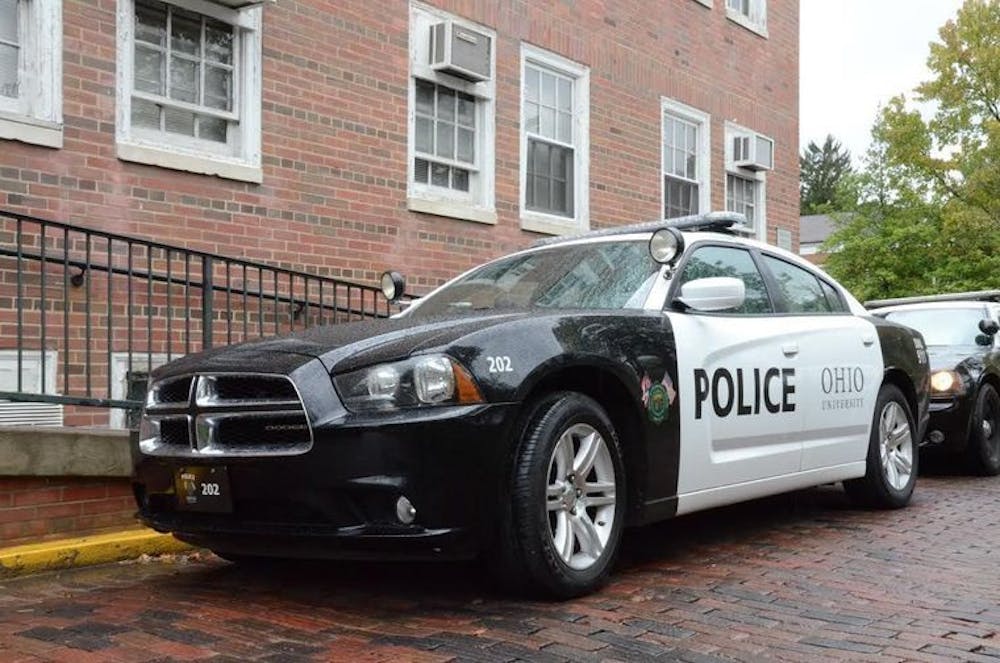As of Friday, all three Athens-based law enforcement agencies have met new state standards for their hiring and use of force policies.
The Ohio University Police Department received certification from the Ohio Collaborative Community-Police Board on Friday. The Athens Police Department was certified Jan. 17, and the Athens County Sheriff’s Office on Oct. 7. The board has received applications from 350 agencies, which employ 64 percent of police officers in Ohio.
OUPD’s certification is a provisional certification — the department still has to pass an onsite review before its final certification.
The Ohio Collaborative Community-Police Advisory Board released its standards in August 2015, according to its website. Gov. John Kasich established the board to improve community-police relations in light of high-profile shootings by police. The deadline for agencies to apply for board certification is Feb. 1.
There are no consequences for agencies who do not adopt board standards.
OUPD Lt. Tim Ryan said his department agrees with the policies.
“We at OUPD have a long and proud history of working with our community and we are embracing the Ohio Collaborative as an opportunity to strengthen and continue that progress,” he said.
He said OUPD made only slight changes to its policies. The department is in the process of changing its policy manual to a new format, which has required similar changes across the board.
OUPD and APD recently began using services from the same company, Lexipol, to manage their policies. APD Chief Tom Pyle said he decided to start using the service because he expects the Ohio Collaborative standards to change each year.
Lexipol makes policy recommendations to APD based on changing state standards and case law. Pyle said the service costs $8,000 or $9,000 a year.
Athens County Sheriff Rodney Smith said most of the policy changes his office made to meet board standards were “tweaks.” He said the largest change was adopting the polygraph test in the hiring process for deputy candidates.
Polygraph, or “lie detector,” tests measure physical responses such as blood pressure and heart rate while subjects answer a series of questions. Polygraph tests have fallen out of favor in courtrooms due to concerns about their accuracy, but many police agencies still use the test for job candidates.
He said board standards require his office to administer the polygraph, but do not require him to give the test weight in the hiring process.
“I’m just not a big believer in the polygraph,” Smith said. “I don’t know how comfortable I would feel not giving someone a job because of that.”
Pyle said his department’s use of force policies already met board standards. APD had to write a new hiring policy because it had previously used the city's, but other than that, beginning to use Lexipol services was the main change.
He said he adopted the standards because he thinks state funding could be tied to them one day. He also thinks it’s the right thing for the community.
“Quite frankly, it’s a police reform movement that needs to take place statewide,” Pyle said.






